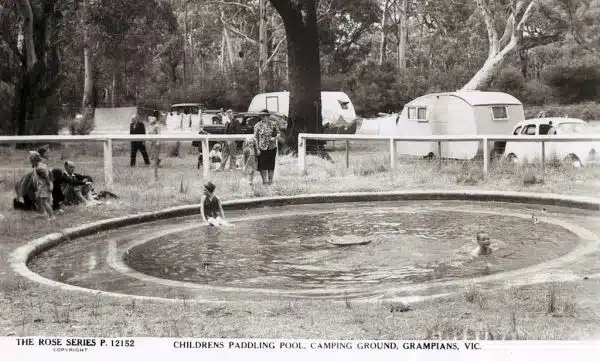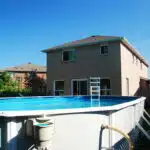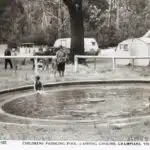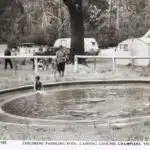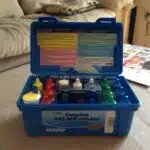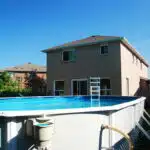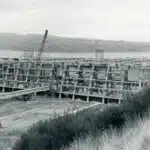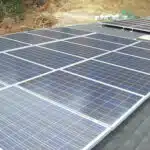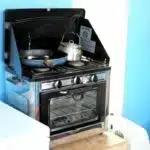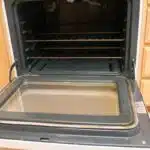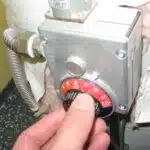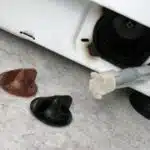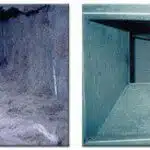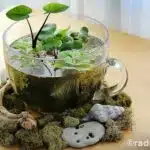As a pool maintenance specialist, one of the most common questions I receive from pool owners is how long their above-ground pools will last. This is an important question to consider when making an investment in a backyard pool. Knowing the average lifespan of an above-ground pool can help you make informed decisions about maintenance and replacement, ultimately saving you time and money.
There are several factors that can affect the lifespan of an above-ground pool, including materials used in construction, climate conditions, and regular maintenance. In this article, we will explore these factors in-depth to provide you with a comprehensive understanding of how long your above-ground pool is likely to last. Whether you are a new pool owner or have had your above-ground pool for many years, understanding the lifespan of your investment is essential for its longevity and continued enjoyment.
The Importance Of Knowing Your Above-Ground Pool’s Lifespan
Knowing the lifespan of an above-ground pool is important for homeowners who want to make the most out of their investment. Replacing an above-ground pool can be costly, so it’s crucial to determine when it’s time to say goodbye to your current one and invest in a new one. As a professional pool maintenance specialist, I have seen firsthand how ignoring the lifespan of above-ground pools can lead to bigger problems down the road.
One of the benefits of replacing your above-ground pool is that you get to enjoy all the latest features that come with newer models. Modern above-ground pools are more energy-efficient and environmentally friendly than older ones, which means lower utility bills for homeowners. Additionally, newer pools often require less maintenance and fewer repairs, saving homeowners money in the long run.
Factors affecting lifespan vary depending on various factors such as climate, usage, and proper maintenance. Understanding these factors is key to prolonging your above-ground pool’s lifespan. In the next section, we will explore some of these factors in detail and discuss how they impact your pool’s longevity.
Factors That Affect The Lifespan Of Above-Ground Pools
As a pool maintenance specialist, I have seen many above-ground pools come and go. It is important to understand that there are several factors that affect the durability of an above-ground pool. These factors include the quality of materials used in construction, where the pool is located, and how well it is maintained.
Firstly, the quality of materials used in construction plays a significant role in determining how long an above-ground pool will last. If you invest in a high-quality pool that is made from durable materials, such as resin or aluminum, it can last for up to 20 years or more with proper care. On the other hand, if you opt for a cheaper model made from low-grade materials like steel or plastic, you may need to replace it much sooner.
Secondly, where your pool is located can also impact its lifespan. If your pool is situated in an area with harsh weather conditions like extreme heat or cold temperatures, it will be subjected to wear and tear more quickly than if it were located in a milder climate. Additionally, if your pool is exposed to direct sunlight for extended periods without any shade protection, the UV rays can cause fading and cracking over time.
Lastly, regular maintenance is critical for keeping your above-ground pool in good condition. Neglecting routine tasks like cleaning debris from the water’s surface or balancing chemical levels can lead to problems down the road. By following proper maintenance procedures and investing in quality equipment like covers and filters, you can increase your above-ground pool’s lifespan significantly.
How to Increase the Lifespan of Your Above Ground Pool
To ensure that your above-ground pool lasts as long as possible, it’s essential to take proactive steps towards increasing its lifespan. Here are some tips on how you can do this:
Invest in high-quality materials: As mentioned earlier, choosing durable materials like resin or aluminum can make a significant difference in your pool’s longevity.
Provide shade protection: Installing a canopy or other form of shade protection can help reduce exposure to direct sunlight, which can cause fading and cracking over time.
Follow proper maintenance procedures: Regularly cleaning and balancing chemical levels will go a long way towards keeping your above-ground pool in good condition. Additionally, investing in quality equipment like covers and filters can help prevent problems down the road.
In the next section, we will explore the different materials used in above-ground pool construction and how they impact the durability of your pool.
Materials Used In Above-Ground Pool Construction
The materials used in the construction of an above-ground pool can significantly impact its lifespan. Traditional materials, such as steel, aluminum, and resin, are the most common options available in the market. Steel is a popular choice for homeowners due to its durability and strength. However, it is susceptible to rust and corrosion over time, which may shorten its lifespan. Comparatively, aluminum is more expensive than steel but offers better resistance to rusting and corrosion.
Resin is another alternative material that has become increasingly popular among homeowners. Resin-based pools are made from synthetic materials that provide excellent resistance to rusting and corrosion. Unlike traditional materials, these pools do not require painting or resurfacing after several years of use. Although resin-based pools are more expensive than their traditional counterparts, they offer significant cost savings in the long run due to their longevity.
Cost comparison is an essential factor when selecting the best material for your above-ground pool project. Homeowners should weigh the costs of purchasing and installing a pool against maintenance expenses over time. Although traditional materials have lower upfront costs than alternative materials such as resin or aluminum, they often require significant maintenance costs over time due to rusting and corrosion problems. In contrast, alternative materials may be more expensive initially but result in long-term cost savings by minimizing maintenance expenses over time.
Understanding the role of climate conditions is crucial when choosing material for your above-ground pool project. Climate conditions can significantly affect the lifespan of your pool based on whether you live in areas with high humidity or dry climates. The type of soil also plays a role since some soil types retain moisture while others allow water to drain quickly away from your pool area. Therefore, understanding these factors can help you select the right material that will withstand harsh weather conditions while providing maximum longevity for your above-ground pool project , ultimately ensuring a stable and safe pool area for you and your loved ones to enjoy for years to come.
Understanding The Role Of Climate Conditions
As we have discussed in the previous section, above-ground pools are constructed using different materials. These materials determine how long the pool will last and how durable it can be against external factors such as weather conditions and location. However, the lifespan of an above-ground pool is not solely dependent on its construction material. The location where it is built and the climate conditions surrounding it also play a significant role.
The effects of location on an above-ground pool’s lifespan cannot be understated. If you live in an area with high humidity or near the coast, your pool may experience rusting or corrosion faster than those built in drier locations. Additionally, if your pool is situated near trees or bushes, there is a chance that debris such as leaves or twigs could fall into your pool, leading to clogging and other maintenance issues.
The impact of weather is another factor that affects the lifespan of above-ground pools. Prolonged exposure to sunlight can cause fading and weaken the material used to construct the pool walls. Exposure to extreme temperatures such as frost can lead to plastic cracking or warping, while heavy snow loads could damage the walls and cause them to collapse altogether. To ensure that your above-ground pool lasts for a reasonable period, it is essential to consider both location and climate conditions when selecting a site for installation.
Regular Maintenance For Extended Lifespan
To extend the lifespan of your above-ground pool, regular maintenance is crucial. Seasonal upkeep is a must to keep your pool in good condition and prevent any potential damage. This includes removing debris from the pool cover, checking for leaks, and inspecting the pool’s walls for any signs of wear and tear.
Maintaining chemical balance is also necessary to prevent algae growth and ensure safe swimming conditions. It is recommended to check the pH levels of the water weekly and adjust as needed with appropriate chemicals. Regular shock treatments are also necessary to eliminate bacteria and other harmful microorganisms.
In addition to these regular maintenance tasks, there are several other steps you can take to prolong the lifespan of your above-ground pool:
- Use a pool cover when not in use
- Keep water levels consistent
- Avoid overfilling or draining the pool too frequently
- Trim tree branches that may fall onto the pool area
- Keep pets away from the pool
By implementing these measures, you can ensure that your above-ground pool lasts for many years to come.
Transition into subsequent section: While regular maintenance can help prolong the life of your above-ground pool, there may come a time when repair or replacement is necessary. Here are some signs to look out for that indicate it may be time for a change.
Signs That Your Above-Ground Pool May Need Repair Or Replacement
Just like any other structure, above-ground pools have a lifespan. While regular pool maintenance can extend its longevity, it will eventually reach the end of its useful life. The question is, how long do above-ground pools last? On average, these pools can last anywhere from 10 to 20 years depending on various factors.
Factors such as the quality of materials used during construction, the type of water treatment system employed, and frequency of pool maintenance play a significant role in determining the lifespan of an above-ground pool. Poor quality materials or lack of proper care may lead to premature wear and tear that reduces its useful life. For instance, when exposed to harsh weather conditions like strong winds and excessive heat for prolonged periods, the structure may weaken and develop cracks.
If your above-ground pool has reached its limit and needs repair solutions or replacement, you need to act fast. Failing to address the issue promptly may result in more extensive damage that could cost you more money in repairs or even lead to accidents. Pool maintenance experts recommend seeking their services if you notice signs such as visible rust spots on walls or frame components, continuous leaks that reduce water level significantly over a short period or weak spots around support posts.
Assessing the age of your above-ground pool is crucial in helping you decide whether it’s time for repair solutions or replacement. Factors such as frequency of use, exposure to harsh weather conditions and quality of materials used during construction should guide this assessment. By keeping track of these factors over time and seeking professional advice when necessary, you can enjoy your above-ground pool for many years without worrying about unexpected repair costs or accidents.
Assessing The Age Of Your Above-Ground Pool
As a pool maintenance specialist, it is important to know how long above-ground pools last. Generally, the lifespan of an above-ground pool depends on several factors such as material quality, weather conditions, and maintenance routine. However, most above-ground pools last for around 10-15 years.
To assess the age of your above-ground pool, you can check its warranty or installation paperwork if available. If not, you can examine the condition of the pool’s walls and liner. If there are signs of rust or corrosion on the walls or tears in the liner, it may be time to consider replacement options.
When considering replacement options for your above-ground pool, there are various factors that you should keep in mind. First and foremost is the budget. Replacing a pool can be expensive, so it is important to consider how much you are willing to spend. Additionally, you should think about the size and shape of your yard and choose a pool that suits those requirements. Lastly, consider any additional features or accessories that you want such as a diving board or ladder.
Pool maintenance plays a crucial role in extending the lifespan of an above-ground pool. However, even with proper care and upkeep, common problems can still occur. In the next section, we will discuss some common above-ground pool problems and solutions to help keep your pool in optimal condition for years to come.
Common Above-Ground Pool Problems And Solutions
Pool maintenance is an essential part of owning an above-ground pool. By regularly cleaning and maintaining the pool, owners can prolong its lifespan and prevent costly repairs. However, even with proper maintenance, common problems can arise.
One common issue that above-ground pool owners face is leaks. Leaks can occur in various parts of the pool, such as the liner or plumbing system. To repair a leaky liner, patch kits are available at most pool supply stores. Plumbing leaks may require professional assistance to locate and fix.
Another problem that can occur is rust on the pool walls or frame. Rust can weaken the structure of the pool and cause it to collapse if not addressed promptly. To prevent rust, owners should paint their pools every few years using a high-quality paint designed for above-ground pools.
In summary, above-ground pools can last anywhere from 10-20 years with proper maintenance and care. Common problems such as leaks and rust can be addressed with simple repair solutions or professional assistance when necessary. By staying proactive in maintaining their pools, owners can enjoy their investment for many years to come.
Transition: Now that we’ve discussed some common problems that may arise with above-ground pools let’s move on to some tips for maintaining your pool and preventing these issues from occurring in the first place.
Tips For Maintaining Your Above-Ground Pool
- Above-ground pools are generally easier to maintain than in-ground pools. Regular cleaning and maintenance will help ensure a longer lifespan for your pool.
- Cleaning your above-ground pool should be a regular part of your maintenance routine, and cleaning the walls, floor, and skimmer baskets should be done at least once a week.
- Checking the water balance of your pool is also essential for maintaining the health of your pool. The pH, alkalinity, and calcium hardness should be tested at least once a month and adjusted as necessary.
- Regular maintenance of your above-ground pool should include inspecting the filter, checking the pump and motor, and making sure the filter basket is cleared of debris.
- Above-ground pools typically last anywhere from five to fifteen years, depending on the care taken in maintenance.
- Following these tips for maintaining your above-ground pool can help you extend the life of your pool and ensure it is a safe and enjoyable experience.
Cleaning The Pool
One of the most important aspects of pool maintenance is keeping your above-ground pool clean. Neglecting this task can lead to a variety of problems, including algae growth, bacterial buildup, and even damage to the pool itself. To avoid these issues, it’s crucial to establish a regular cleaning routine.
When it comes to cleaning techniques, there are several options available. The most common method is using a pool skimmer to remove leaves, debris, and insects from the surface of the water. Additionally, you may want to invest in a pool vacuum or pressure cleaner to eliminate dirt and grime that has settled on the bottom of the pool. It’s also important to regularly brush the walls and floor of your pool to prevent buildup and promote circulation.
Overall, effective pool maintenance requires a combination of techniques tailored to your specific needs. Whether you’re dealing with heavy leaf coverage or frequent use by swimmers, staying on top of cleaning tasks is essential for keeping your above-ground pool in top condition for years to come.
Checking Water Balance
Maintaining an above-ground pool requires more than just regular cleaning. Checking the water balance is a crucial task that should not be overlooked. Water testing is essential to ensure that the pool water is safe and healthy for swimmers. Testing kits are readily available, and it’s recommended to test the water at least once a week.
One important aspect of water testing is monitoring pH levels. The ideal pH range for pool water is between 7.2 and 7.8. If the pH level falls below this range, it can cause skin irritation, eye redness, and damage to pool equipment. On the other hand, if the pH level rises above the ideal range, it can lead to cloudy water and reduce the effectiveness of chlorine. Regularly adjusting the pH level with appropriate chemicals can help maintain optimal conditions for swimming.
In summary, checking water balance is an essential part of maintaining an above-ground pool. Water testing and monitoring pH levels are important tasks that should not be neglected. By staying on top of these maintenance tasks, you can ensure that your pool remains a safe and enjoyable place for swimmers while also extending its lifespan.
Regular Maintenance
Regular maintenance is crucial in ensuring that your above-ground pool stays in top condition. Pool maintenance tips should be followed regularly to prevent pool damage and keep the water crystal clear. One of the most important things to do is to skim the surface of the pool daily to remove debris such as leaves, insects, and other floating particles. Doing this prevents these items from sinking and clogging up your pool filter.
Another essential aspect of regular maintenance is brushing the walls and floor of your pool at least once a week. This helps to remove any build-up that may have accumulated over time, including algae and other organisms that could cause health problems for swimmers. Additionally, it’s important to vacuum the bottom of the pool regularly to ensure that no dirt or other materials are left behind.
Lastly, maintaining proper water circulation in your pool is critical for preventing damage to equipment, reducing chemical use, and keeping water clean. This can be achieved by running your filter system for at least eight hours each day during peak swimming season or as recommended by your manufacturer’s instructions. Regular cleaning of filters and replacing them when necessary will also help prolong their lifespan while ensuring optimal performance.
By following these simple but effective tips for maintaining an above-ground pool, you can extend its lifespan while keeping it safe and enjoyable for everyone who uses it. Remember, regular maintenance is key!
Choosing The Right Pool Cover For Your Above-Ground Pool
Maintaining your above-ground pool is crucial in preserving its longevity. However, it’s not just about routine cleaning and chemical balancing. Investing in the right pool cover can also significantly extend the lifespan of your pool. Pool covers provide protection from debris, weather changes, and even sunlight exposure that can cause damage over time.
There are different types of pool covers to choose from, each with its unique features and benefits. One popular choice is the standard winter cover, which is made of durable material and provides ample protection during harsh weather conditions. Another option is the safety cover, which not only protects your pool but also secures it from unwanted access.
Installing a pool cover may seem like a simple task, but proper installation is crucial in ensuring maximum protection for your above-ground pool. Here are some installation tips to keep in mind:
- Clean the pool thoroughly before covering it.
- Ensure that the cover fits snugly over the edges of the pool.
- Tighten any straps or fasteners securely.
- Remove any standing water on top of the cover regularly to prevent damage.
Investing in a quality pool cover and proper installation can significantly prolong the lifespan of your above-ground pool. In the next section, we will discuss further how to prepare your pool for winterization to ensure its longevity for years to come.
Winterizing Your Above-Ground Pool
As the summer season comes to an end, it is essential to start thinking about winterizing your above-ground pool. Properly winterizing your pool can ensure that it remains in good condition and ready for use when the next swimming season arrives. Here are some winterizing tips that can help you get started.
The first step in winterizing your above-ground pool is to balance the chemical levels. It is important to ensure that pH levels are between 7.2 and 7.8, and alkalinity levels are between 80 and 120 ppm. Additionally, chlorine levels should be at least 1 ppm. Balancing the chemical levels will help prevent algae growth and corrosion during the winter months.
Once the chemical levels are balanced, it is time to prepare your pool for the colder weather. This includes removing any debris from the pool, cleaning the filter system, and lowering the water level below the skimmer line. You may also want to add a winter cover to protect your pool from debris and harsh weather conditions.
In summary, properly winterizing your above-ground pool is crucial for its longevity and usability in future seasons. By following these simple steps such as balancing chemical levels and preparing your pool for colder weather conditions, you can ensure that your investment will remain intact throughout winter months without damage or wear-and-tear.
Transition: Now that we have discussed how to properly winterize your above-ground pool, let’s take a look at how to open it up for use in the summer season.
Opening Your Above-Ground Pool For The Summer Season
- Before opening an above-ground pool, it is important to check the condition of the pool liner and pool walls for any signs of damage or deterioration.
- Additionally, the pump, filter, skimmer, and other equipment should be inspected and serviced if necessary.
- When adding the necessary chemicals to the pool, it is important to follow the instructions carefully to ensure that the proper levels of sanitizers, shock, pH, and alkalinity are maintained.
- With proper maintenance and care, an above-ground pool can provide many years of enjoyable use.
Preparing The Pool
When the summer season is about to start, it’s time to prepare your above-ground pool for use. As a professional pool maintenance specialist, you know that the first step in preparing the pool is cleaning it thoroughly. This includes removing any debris or leaves that may have accumulated during the winter months and scrubbing the walls and floor of the pool using a specialized pool brush. After cleaning, it’s important to balance the pH levels in your pool water, ensuring that it’s not too acidic or alkaline.
Once you’ve cleaned and balanced the pH levels in your above-ground pool, you can move on to preparing other aspects of the pool for use. This includes checking and replacing any damaged equipment such as filters and pumps. You should also inspect the liner for any rips or tears which could lead to leaks later on. If necessary, replace these liners before filling up the pool with water.
Finally, don’t forget to test your water chemistry regularly throughout the summer season. As an engaged audience who has a subconscious desire for serving others, this will ensure that you can continue enjoying a clean and safe swimming environment all summer long. By maintaining proper pH levels and performing regular pool cleaning, you’ll be able to extend the lifespan of your above-ground pool by several years without needing costly repairs or replacements.
Adding Chemicals
After cleaning and balancing the pH levels in your above-ground pool, it’s time to add chemicals. This is a crucial step in ensuring that your pool water remains clean and safe for swimming. The importance of safety cannot be emphasized enough, especially if you have children or pets using the pool. Chemicals such as chlorine help to kill harmful bacteria and other microorganisms that can cause illness or infection.
It’s important to note that adding too many chemicals or using them improperly can also be hazardous. As a professional pool maintenance specialist, I recommend following the manufacturer’s instructions carefully when adding chemicals to your above-ground pool. Proper storage is also essential to ensure that these chemicals do not pose a safety risk to yourself or others who may come into contact with them.
Regular testing of your water chemistry throughout the summer season will help you determine when it’s necessary to add more chemicals or adjust the levels of existing ones. By maintaining proper chemical balance in your above-ground pool, you’ll be able to enjoy a clean and safe swimming environment all summer long. Remember, safety should always be your top priority when opening your above-ground pool for the summer season.
Upgrading Your Above-Ground Pool
After opening your above-ground pool for the summer season, it’s important to consider upgrading your pool and its accessories. Pool maintenance is crucial for ensuring its longevity, but replacing certain parts or adding new features can greatly enhance your swimming experience.
To upgrade your pool, consider the following four items:
- Installing a pool liner to protect against punctures and tears.
- Adding a solar cover to retain heat and reduce water evaporation.
- Upgrading your filtration system to improve water circulation and cleanliness.
- Incorporating fun pool accessories like a slide or diving board.
Regular pool maintenance should also continue throughout the season, including testing chemical levels and cleaning the pool walls and floor. Neglecting these tasks can lead to bacteria growth and other issues that may require costly repairs.
When it comes time to replace your above-ground pool, cost considerations are important. Factors such as size, materials, and installation fees can greatly vary. It’s important to research different options and choose a reputable installer who can provide an accurate quote for the total cost of replacing your pool.
Transition: As you consider upgrading your above-ground pool with new accessories or replacement options, it’s important to keep in mind the cost considerations involved in making such decisions.
Cost Considerations When Replacing Your Above-Ground Pool
Budgeting for the replacement of your above-ground pool can be a daunting task, but it is an essential part of maintaining the safety and enjoyment of your backyard oasis. One option to consider when replacing your pool is purchasing a new one that fits within your budget. Another option is to explore pre-owned pools or to purchase replacement parts instead of a whole new pool. The most important thing to keep in mind when budgeting for a replacement is balancing cost with quality.
When considering replacement options for your above-ground pool, there are several factors to take into account. First, consider the size and shape of your current pool and whether you want to make any changes. Next, think about the materials you want for the new pool, such as steel, aluminum, or resin. Additionally, consider any additional features you may want to add, such as lights or a heater. By taking all these factors into account, you can choose a replacement option that meets both your budget and your needs.
Ultimately, when it comes to replacing your above-ground pool, there are many options available for those on a tight budget. By carefully considering all aspects of the replacement process and choosing an option that balances cost with quality, you can ensure that your backyard oasis continues to provide joy and relaxation for years to come. In the following section, we will discuss how maximizing the lifespan of your above-ground pool can help reduce costs over time.
Maximizing The Lifespan Of Your Above-Ground Pool
Pool maintenance is an essential aspect of prolonging the lifespan of your above-ground pool. Regular cleaning, chemical balancing, and equipment inspections are crucial to keep your pool in good condition. Neglecting these tasks can lead to premature wear and tear, ultimately reducing the longevity of your pool.
In addition to regular maintenance, it’s important to address any repair issues promptly. When left unattended, small problems can quickly escalate into more significant and costly repairs. Early detection and swift action can save you time, money, and prevent further damage from occurring.
There are various repair options available for above-ground pools, including liner patching, filter replacement, pump repair or replacement, and structural repairs. It’s best to consult with a professional pool service company to determine the most appropriate solution for your specific needs. By investing in proper maintenance and addressing repairs promptly, you can maximize the lifespan of your above-ground pool and enjoy many years of fun in the sun.
Conclusion
Knowing the lifespan of your above-ground pool is crucial in maximizing its use and value. Several factors affect the longevity of your pool, including construction materials, climate conditions, and regular maintenance. Hailstorms, heavy rainfall, intense heatwaves, and freezing temperatures can damage your pool’s structure and reduce its lifespan. Regular cleaning, proper chemical balance, and timely repairs can extend the life of your pool.
Opening your above-ground pool for summer is an exciting time for the family. Make sure you check for any leaks or cracks before filling it up with water to avoid further damage. Upgrading your pool with new liners or filters can also improve its durability and overall performance. When considering replacing an old pool, cost should not be the only factor to consider; durability and quality should also be considered.
As a professional pool maintenance specialist, it is my duty to ensure that above-ground pools are well-maintained to prolong their lifespan. With proper maintenance and care, you can enjoy countless summers of fun in your backyard oasis. Remember that every little detail counts in maintaining a healthy above-ground pool. So let us work together in keeping our pools sparkling clean and structurally sound for years to come!
Image Credits
- “Children’s paddling pool, camping grounds, Grampians, Victoria – 1940s” by Aussie~mobs (featured)

